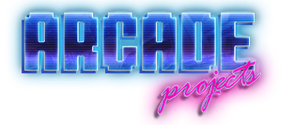Other tips might be usefull, as they were for me:
Get a copy of "ON SEMICONDUCTOR TTL data book". This is like bread to me, it will help you understand logic of chips, how they works, where to check outputs (mostly), what are gates and so on.
it's free and you can download it online, print where you want for few euros.
Then get a logic probe, it's cheaper and you can find it pretty much easely anywhere. This is a essential tool to work with.
Generally i tend to have these steps:
Visual inspection (bridges, broken traces, missing stuff, bent pins, backward/wrong placements), this usually surprise me, i have fixed some boards just by doing that.
Inspect the main functions of the board, CPU (booting or not, HALT and RESET Lines+circuit involved for it), correct program rom, main work rams
Inspect clock and correct htz
If you burn roms, be sure you done it right, with the right eeprom (there's tons of difference, example 27c040 to 27c4001) and right location (Maskrom or jedec) and right burn of them (if you get an error, any sort, don't even considering use it)
USE SOCKETS anytime you can
Then i suddivided the issue (if the game boots) by 3 categories:
Vertical lines/character errors with background ok -> dump and check roms, if ok, check the palette/customs and reflow or change
Game running but no audio, check OP amp or DAC
Error on displaying graphics (scrambled sprites), check rams and then logic involved within.
These are also the stuff i used to call "shit" and sometimes i don't even check, i just change them:
Toshiba RAMS
Fujitsu TTLS
Konami audio modules
Konami color dac
Konami 051550 reset master
Taito rgb + taito custom reset generator
Taito maskroms (the worst of the bunch)
Midway shitty soldering job
Data East transistors (due to pin adapting, bending and snapping by height)
Get a copy of "ON SEMICONDUCTOR TTL data book". This is like bread to me, it will help you understand logic of chips, how they works, where to check outputs (mostly), what are gates and so on.
it's free and you can download it online, print where you want for few euros.
Then get a logic probe, it's cheaper and you can find it pretty much easely anywhere. This is a essential tool to work with.
Generally i tend to have these steps:
Visual inspection (bridges, broken traces, missing stuff, bent pins, backward/wrong placements), this usually surprise me, i have fixed some boards just by doing that.
Inspect the main functions of the board, CPU (booting or not, HALT and RESET Lines+circuit involved for it), correct program rom, main work rams
Inspect clock and correct htz
If you burn roms, be sure you done it right, with the right eeprom (there's tons of difference, example 27c040 to 27c4001) and right location (Maskrom or jedec) and right burn of them (if you get an error, any sort, don't even considering use it)
USE SOCKETS anytime you can
Then i suddivided the issue (if the game boots) by 3 categories:
Vertical lines/character errors with background ok -> dump and check roms, if ok, check the palette/customs and reflow or change
Game running but no audio, check OP amp or DAC
Error on displaying graphics (scrambled sprites), check rams and then logic involved within.
These are also the stuff i used to call "shit" and sometimes i don't even check, i just change them:
Toshiba RAMS
Fujitsu TTLS
Konami audio modules
Konami color dac
Konami 051550 reset master
Taito rgb + taito custom reset generator
Taito maskroms (the worst of the bunch)
Midway shitty soldering job
Data East transistors (due to pin adapting, bending and snapping by height)



